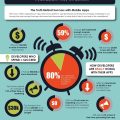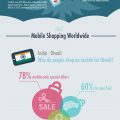Why Blockchain Could Be the Key to Solving Supply Chain Issues Globally
Why Blockchain Could Be the Key to Solving Supply Chain Issues Globally
As the world becomes increasingly interconnected, global supply chains have grown in complexity, spanning across multiple continents, industries, and stakeholders. However, this increased complexity has also led to a multitude of challenges, from inefficiencies and lack of transparency to counterfeiting and product contamination. In recent years, blockchain technology has emerged as a potential solution to these issues, with many experts believing it could be the key to transforming supply chains worldwide.
In this article, we’ll delve into the current state of global supply chains, explore the problems they face, and examine how blockchain can help alleviate these challenges. We’ll also look at some real-world examples of companies already leveraging blockchain in their supply chains and discuss the future outlook for this innovative technology.
The Current State of Global Supply Chains
Global supply chains are a maze of intricate relationships between suppliers, manufacturers, logistics providers, retailers, and consumers. They involve the movement of goods, services, and information across multiple borders, making them vulnerable to disruptions, errors, and malicious activities.
According to a survey by McKinsey, 75% of companies report having experienced at least one supply chain disruption in the past year, resulting in significant losses in revenue and reputation. Moreover, the rise of e-commerce has increased demand for faster and more flexible supply chains, putting additional pressure on already-strained systems.
Challenges Facing Global Supply Chains
So, what are some of the most pressing issues affecting global supply chains today? Here are a few:
- Lack of Transparency: With so many stakeholders involved, it’s often difficult to track goods as they move through the supply chain. This lack of visibility makes it challenging to identify and address problems before they escalate.
- Inefficiencies: Manual data entry, paper-based documentation, and inadequate communication between parties can lead to errors, delays, and wasted resources.
- Counterfeiting: The global counterfeit market is projected to reach $1.82 trillion by 2025, with many fake goods infiltrating supply chains undetected.
- Product Contamination: Inadequate tracking and tracing make it difficult to identify the source of contaminated products, putting consumer health at risk.
How Blockchain Can Help
Blockchain technology offers a solution to these challenges by providing a decentralized, immutable ledger for recording transactions and data. By leveraging blockchain in supply chains, companies can:
- Increase Transparency: All stakeholders have access to the same, up-to-date information on the movement of goods, enabling real-time tracking and monitoring.
- Improve Efficiency: Automated processes, digital documentation, and smart contracts reduce errors and delays, freeing up resources for more strategic activities.
- Prevent Counterfeiting: Unique product identifiers and tamper-evident packaging can be tracked throughout the supply chain, making it easier to detect and prevent counterfeits.
- Enhance Product Safety: Rapid tracking and tracing enable swift identification of contaminated products, minimizing harm to consumers.
Real-World Examples
Several companies have already started exploring blockchain in their supply chains. Here are a few examples:
- Maersk and IBM: In 2018, the shipping giant partnered with IBM to develop a blockchain-based platform for tracking containers and verifying the authenticity of goods.
- Walmart and Food Safety: Walmart has been working with suppliers to implement a blockchain-based system for tracking produce from farm to store shelf, enhancing food safety and reducing recall times.
- De Beers and Diamond Tracking: The diamond mining company has developed a blockchain platform for tracing diamonds from mine to consumer, ensuring authenticity and combatting blood diamond trading.
Future Outlook
While these examples demonstrate the potential of blockchain in supply chains, there are still challenges to overcome before widespread adoption. Some of the key hurdles include:
- Scalability: Blockchain technology must be able to handle high transaction volumes and large amounts of data.
- Interoperability: Different blockchains need to be able to communicate seamlessly with one another.
- Regulation: Governments and regulatory bodies must establish clear guidelines for blockchain use in supply chains.
Despite these challenges, many experts believe that blockchain will become an integral part of global supply chains in the coming years. As technology continues to evolve and mature, we can expect to see more companies exploring its potential to drive efficiency, transparency, and security.
Conclusion
Global supply chains are facing unprecedented challenges, from lack of transparency to counterfeiting and product contamination. Blockchain technology offers a promising solution to these issues, providing a decentralized, immutable ledger for recording transactions and data. By leveraging blockchain, companies can increase transparency, improve efficiency, prevent counterfeiting, and enhance product safety.
While there are still challenges to overcome before widespread adoption, the potential benefits of blockchain in supply chains make it an exciting space to watch in the coming years. As startups and entrepreneurs continue to explore this innovative technology, we can expect to see significant transformations in the way goods move around the world.
In the words of Don Tapscott, Co-Founder and Executive Chairman of the Blockchain Research Institute: “Blockchain is not just a technology, it’s a new paradigm for trust, collaboration, and commerce. It has the potential to transform every aspect of global supply chains, making them more efficient, secure, and sustainable.”








